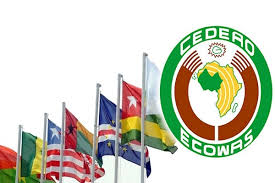By John Okeke
As part of efforts towards mitigating the effects of climate change on member states, lawmakers from the Economic Community of West African States Commission (ECOWAS) have been charged to endeavor to facilitate the establishment of sustainable governance mechanism for climate change in their various countries.
The ECOWAS Commission’s Project Coordinator, Climate Change Environmental Directorate, Department of Agriculture, Environment and Water Resources, Raoul KOUAME gave the charge during his presentation before the ECOWAS Parliament Joint Committee on Agriculture, Environment and Natural Resources/ Infrastructure/ Energy and Mines/ Industry and Private Sector in Bissau, Capital of Guinea Bissau on Wednesday.
He spoke on the second day of the delocalized meeting of the Parliament’s joint committee which has the theme: “A critical look at the ECOWAS Environmental Policy and Climate Strategy, as well as a biennial review of the agricultural production, food and nutritional security in Member States”, on the topic, “ECOWAS Environment Policy and Climate Strategy”.
According to KOUAME, Members of Parliament need to do more at addressing the effects of climate change in the sub-region by developing strategies at the national level that will make their government adopt policies for the betterment of the citizens.
The Coordinator who revealed different efforts by the commission to mitigate the effects of climate, says more funding into the subject will go a long way at making the efforts succeed.
He said,“The environment directorate has developed some key documents which is the ECOWAS Environmental policy and also from there we draw the regional climate strategy which come along with the climate finance access and mobilization strategy for us to allow the commission to mobilize the adequate resources for the implementation of the climate change strategy and also contributing to the implementation environmental policy.
As you know also for the implementation of such document we need to put in place some mechanism, some law at the national level where the MPs also have role to play.
So our intention of presenting all these document is for them when going back to their different countries, they can also be aware what efforts at regional level has been taken by the commission and they also need to translate in the national law”.
In his presentation on the topic, “The Biennial Review of Agriculture, Food and Nutrition Security by Member Countries”, the Director of Agriculture and Rural Development, ECOWAS Commission, Alain Sy Traoré made case for 10% budgetary allocation to agriculture in order to attend to the Malabo commitments.
He however warned that if status quo is maintained on approach to Agriculture among member states, the 2025 goal for the elimination of hunger and poverty in the sub-region will not be achieved.
Traore wants MPs to do more in their oversight functions at making sure that every fund allocated for projects are judiciously utilized.
He said, “if you have a national budget agric investment plan, designed, approved and adopted at the national level so it means you will be given necessary budget allocation on annual budgeting programming, if you do not do annual budgeting programming then you will not meet it, then of course you need to do economic analysis so that you know where investment will be going and even though when you meet the 10% of allocation you also to look at the efficiency of the investment.
That, is the money going on ground to the farmers at the local level or is the money going somewhere else? These are the typical questions.
And of course, the public leaders have primary responsibility for allocating enough fund into Agric sector.
The 10% is just the minimum so that we can get the target of ending hunger and making agriculture contributing in the global growth economy in each of the member state”.
Giving concerns on the presentations, a member of the joint committee, Hon. KAIPAY Jonathan Lambort expressed worries over road connectivity in member countries. According to him, when farmers cannot get their farm produces to the market due to bad roads, they get spoilt and this encourages hunger.
He said,“One of the integrated part of agriculture is road connectivity, how do we facilitate, what are the strategies in place, how do we ensure that there is a programme that facilitates agriculture along road connectivity? If the farmers produce the crops and cannot get them to the market, you have problem.
How we can encourage member states especially the government to look at agriculture when it come to a sustainable tool. Some countries have agriculture development banks, some banks are dedicated to agriculture institutes, how do we encourage these institutions so that they lend out resources so farmers could be encouraged thereby boosting farm production thus addressing the issue of food insecurity”.
Also speaking, a member of the joint committee, Hon. Musah Abdul-Aziz Ayaba, who expressed worry over challenges of importation of fertilizer due to the ongoing war between Russia and Ukraine, called for encouragement of the production of fertilizer within the sub-region.
“This Russia/Ukraine war has affected us a lot in the area of fertilizers and now we want to know what recommendation we need to know so that when we want to produce our own fertizer in the coming years” he said.
After listening to the committee members, the presenters promised to holistically look into the concerns raised to help the people of the sub-region a more sustained life.



